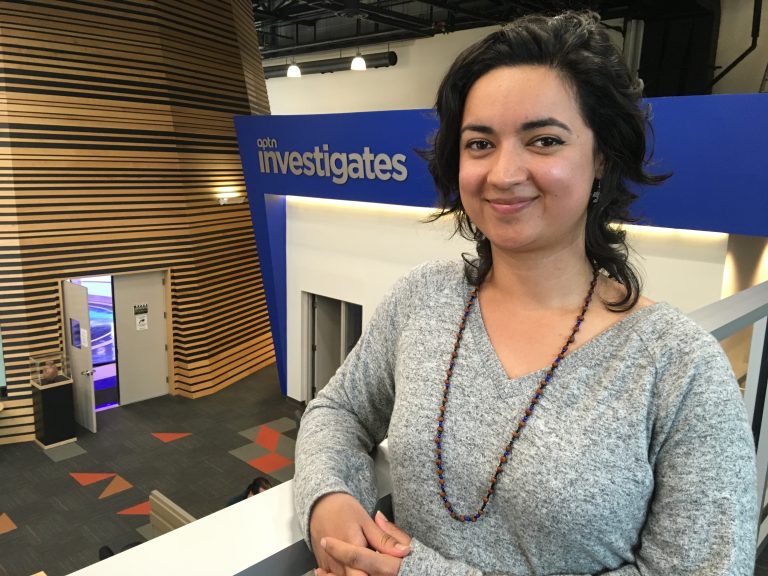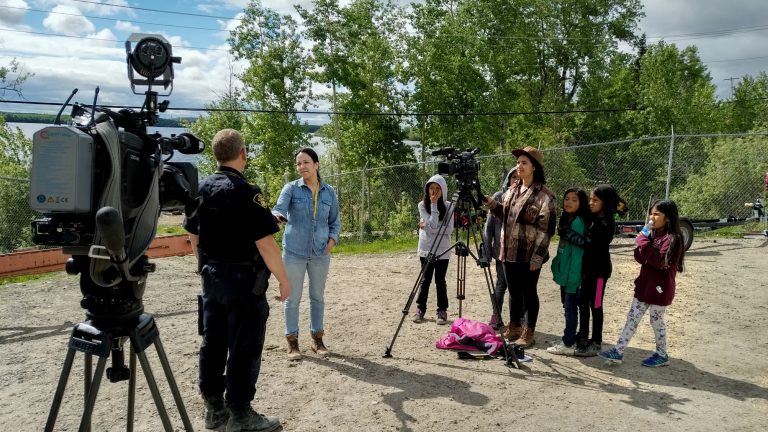

Galay-Tamang is spending 12 weeks with APTN Investigates in Winnipeg.
Before she joined the UBC School of Journalism in September 2017, Jamuna Galay-Tamang spent six years as a nurse, partly working in Indigenous communities where tap water was undrinkable.
She recalls the uncertainty of having to boil her own water in areas not far from urban centres. Residents would often walk into the health centre with physical symptoms, she said.
“I came to UBC knowing I wanted to really spend time getting to understand water and learning how I could actually be of use,” she said.
Galay-Tamang has been named a 2018 Aboriginal Investigative Journalism Fellow, joining the investigative team at the Aboriginal Peoples Television Network in Winnipeg for a 12-week paid placement.
She’s reporting on the health effects of unsafe drinking water in Pikangikum First Nation, a remote community in Northwestern Ontario.
Galay-Tamang, who is of Dene-Metis and Nepali heritage, is not only focusing on the physical effects, but the psychological and spiritual impacts, too.
“Jamuna’s pitch was exciting in its vision and scope,” APTN’s director of news and current affairs Karyn Pugliese said.
‘It feels like a huge privilege’
Galay-Tamang’s story will air as a 23-minute investigative documentary on APTN. She spent the first month researching and interviewing sources. In early June, she travelled to Pikangikum First Nation, which is accessible only by plane. She’ll soon work on storyboarding, narration and editing.


Galay-Tamang travelled to Ontario’s Pikangikum First Nation in early June to report on unsafe drinking water.
“I feel like APTN is creating a space where I can practice doing journalism,” she said. “On my second day, they got me in front of a camera, just practicing a standup and talking to the camera.”
“It feels like a huge privilege to be given this amount of freedom to explore something I care about so much,” she added.
APTN was launched in 1999 as the first world’s national Indigenous broadcaster and reaches about 11 million people in Canada. It’s the second year they’ve offered the fellowship, in partnership with the Canadian Association of Journalists.
Galay-Tamang already had some experience reporting Indigenous stories. She produced a piece in May about Tsleil-Waututh language educators for the UBC Journalism School’s Reporting in Indigenous Communities course.
“To be in that course felt like the greatest gift for me,” she said. “It prepared me for the conversations and paying attention.”
As part of her fellowship, Galay-Tamang attended the 2018 CAJ conference and will be invited to the 2019 conference to present her APTN piece.
She plans to pursue further reporting on the subject as a final research project in her second year with a $17,500 grant from the Social Sciences and Humanities Research Council of Canada


